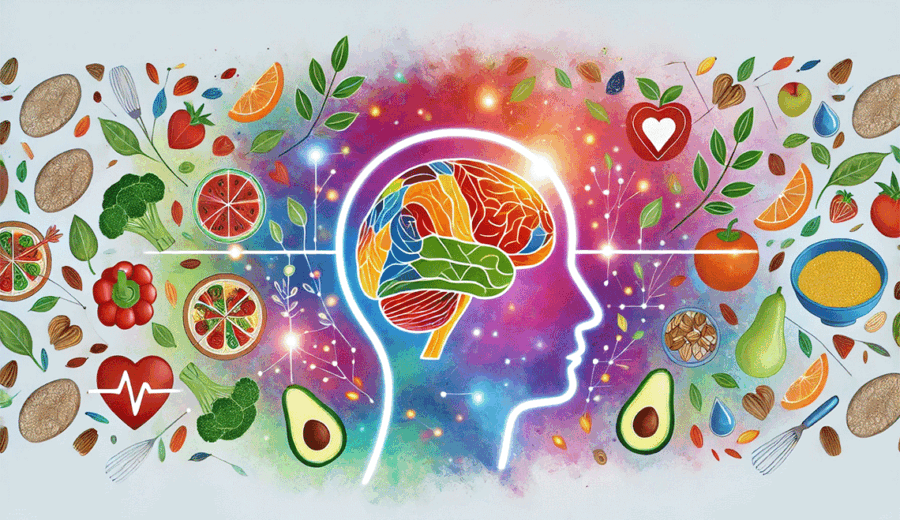
December 2, 2023
Nutrition and Mental Health
The Connection Between Nutrition and Mental Health
The food we eat plays a crucial role in not only our physical health but also our mental well-being. A balanced diet can significantly impact brain function, mood regulation, and overall emotional health. Understanding this connection empowers us to make dietary choices that support a healthier mind.
How Nutrition Impacts Mental Health
- Brain Function and Cognitive Health:
- The brain requires specific nutrients, such as omega-3 fatty acids, vitamins, and minerals, to function optimally.
- A deficiency in these nutrients can lead to difficulties in memory, focus, and problem-solving.
- Mood Regulation:
- Nutrients like tryptophan, found in protein-rich foods, are precursors to serotonin, a neurotransmitter that regulates mood.
- Balanced blood sugar levels, achieved through regular meals with complex carbohydrates, prevent mood swings and irritability.
- Gut-Brain Connection:
- The gut microbiome communicates with the brain through the gut-brain axis.
- Consuming fiber-rich and fermented foods supports healthy gut bacteria, which in turn influences emotional well-being.
- Stress and Inflammation Reduction:
- Antioxidants found in fruits and vegetables combat oxidative stress, which can harm brain cells.
- Anti-inflammatory foods, like fatty fish and nuts, help reduce inflammation linked to mental health conditions.
Key Nutrients for Mental Well-being
- Omega-3 Fatty Acids:
- Found in fatty fish (salmon, mackerel), walnuts, and flaxseeds.
- Supports brain health, reduces depression, and enhances cognitive function.
- Vitamins:
- B Vitamins: Essential for energy production and reducing fatigue. Found in leafy greens, eggs, and legumes.
- Vitamin D: Aids in mood regulation. Sources include sunlight, fortified foods, and fatty fish.
- Minerals:
- Magnesium: Helps manage stress and anxiety. Found in nuts, seeds, and whole grains.
- Zinc: Linked to improved mood and brain function. Found in beans, nuts, and seafood.
- Probiotics:
- Found in yogurt, kefir, sauerkraut, and kimchi.
- Enhance gut health, indirectly benefiting mood and mental clarity.
- Complex Carbohydrates:
- Found in whole grains, fruits, and vegetables.
- Provide a steady release of glucose, the brain’s primary energy source.
Foods to Avoid for Better Mental Health
- Processed Foods:
- High in unhealthy fats and sugars, they can negatively affect mood and energy levels.
- Sugary Snacks:
- Cause blood sugar spikes and crashes, leading to irritability and fatigue.
- Excessive Caffeine and Alcohol:
- Can disrupt sleep patterns and exacerbate anxiety.
Tips for a Brain-Healthy Diet
- Balance is Key:
- Incorporate a variety of food groups to ensure all essential nutrients are covered.
- Plan Meals Mindfully:
- Prepare meals ahead to avoid reliance on processed or fast foods.
- Hydration Matters:
- Drink enough water daily, as dehydration can lead to fatigue and difficulty concentrating.
- Listen to Your Body:
- Pay attention to how different foods affect your mood and energy levels.





Leave a Reply